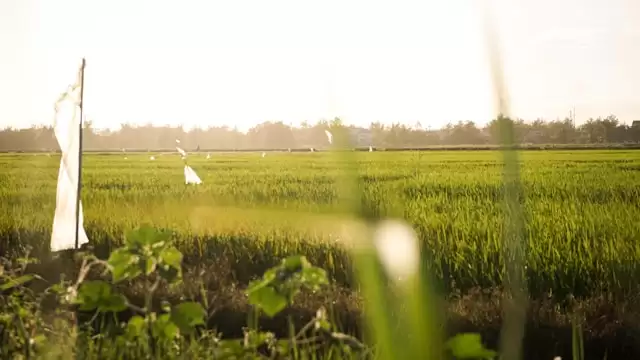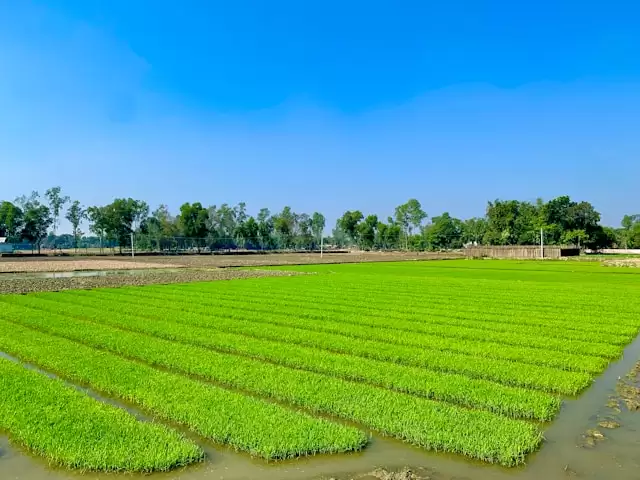High Emissions Challenge
On October 4, a workshop in Dak Lak titled “The Current Status of Agricultural and Forestry Production Adapting to Climate Change and Developing the Carbon Market in Dak Lak” gathered experts to discuss the pressing need for integrated solutions to reduce greenhouse gas emissions and promote carbon credit trading.
Dak Lak province, with approximately 679,000 hectares of agricultural land and over 700,000 hectares of forestry land, currently faces several challenges. Despite having 38.04% forest cover, much of the agricultural and forestry production is not managed according to sustainable standards. The process of calculating carbon credits is still in its infancy, and agricultural production responding to climate change remains slow and uncoordinated. Environmental degradation, biodiversity loss, and ecological imbalance are growing threats.
Net Zero Goals in Sight
Mr. Tran Minh Tien, General Director of Net Zero Carbon Joint Stock Company, emphasized that humanity has contributed to global warming at an alarming rate. He reiterated that Vietnam aims to cut CO2 emissions to 350 million tons by 2030—a goal requiring $368 billion in funding. A sharp reduction in emissions is critical to achieving this.
“Through our projects, we have successfully reduced total investment costs by 10-20%, while productivity has increased by 10-51%. A single hectare of rice, for instance, can yield a profit of VND 94 million per crop,” said Mr. Tien. “Our company buys back carbon credits from these models, proving that low-emission agricultural production can not only be profitable but also contribute to global emission reduction goals.”
However, the challenge remains—market acceptance of certified carbon credits is still limited. While 492 renewable energy projects have been registered to reduce emissions, only a few dozen have successfully sold carbon credits.

Partnership for Sustainability: GreenUP and Net Zero Carbon
To overcome these challenges, GreenUP, has joined forces with Net Zero Carbon to help scale the carbon credit market. GreenUP, a leader in I-RECs and carbon credits in Vietnam, brings extensive expertise in helping companies offset emissions and meet their net-zero goals. Through this partnership, GreenUP plays a key role in the development and certification of carbon credits in Dak Lak, ensuring that credits from agricultural and forestry production meet international standards, making them marketable on a global scale. By leveraging GreenUP’s knowledge of international markets, the partnership with Net Zero Carbon aims to expand the availability and sale of certified carbon credits, contributing to Vietnam’s ambitious emission reduction targets.
The Need for a Synchronized Approach
Mr. Vu Tan Phuong, Director of the Office of Sustainable Forest Management Certification, highlighted that greenhouse gases include not only CO2 but also Methane (CH4) and Nitrous Oxide (N2O). All greenhouse gases must be converted to CO2 equivalents (CO2e) when calculating carbon credits, with one carbon credit representing the right to emit one ton of CO2 or CO2e.
To fully capitalize on the carbon credit potential of the Central Highlands, an interdisciplinary, inter-sectoral approach is needed. Effective forest management, stricter law enforcement, and improved agricultural practices are crucial. This involves comprehensive planning and programs targeting key areas rather than piecemeal efforts at the household level.
“Localities need to identify areas with the most potential for carbon credits and attract investment accordingly,” Mr. Phuong said. “Selling carbon credits should be viewed as an additional source of revenue. While the financial contribution of forests is undeniable, the broader environmental and social benefits must also be recognized.”
Opportunities in Dak Lak
According to Mr. Nguyen Thien Van, Vice Chairman of the Dak Lak Provincial People’s Committee, the province holds great potential for the development of carbon credits, especially in forestry and agriculture. Vietnam is currently in the process of establishing a carbon credit exchange platform, expected to be operational by 2025. Once implemented, the carbon credit market will serve as a significant source of income, contributing to sustainable development, environmental protection, and climate change mitigation.
About GreenUP
Pioneering the Green Transition with Expertise and Innovation. With over 10 million I-RECs issued since 2019, we are Vietnam’s leaders in renewable energy certification. Our comprehensive suite of services, positions us uniquely as a one-stop solution for all your green and ESG needs. Experience unparalleled market access, competitive pricing, and strategic partnerships that drive not only cost savings but also significant value to your sustainability goals.







